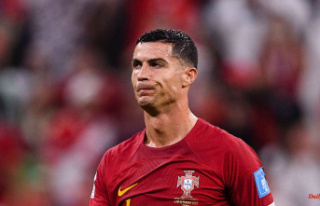The theft of Ukrainian grain is to be atoned for and the trade in Iranian drones is to be stopped - these are the goals the EU is setting itself with the plans for its ninth sanctions package. The embargo also applies to members of the Russian military and government.
The European Commission wants to put further pressure on Russia with a ninth package of sanctions. "Russia continues to bring death and devastation to Ukraine," European Commission President Ursula von der Leyen wrote on Twitter. "We stand with Ukraine and let Russia pay for its atrocities." According to von der Leyen, the eight packages of sanctions introduced by the EU have already had a significant impact.
The ninth package aims to add almost 200 people and organizations to the sanctions list. According to EU foreign policy chief Josep Borrell, it is about members of the Russian military, the defense industry and the government. Among other things, those responsible for the rocket attacks on Ukraine and the theft of Ukrainian grain are to be hit.
In addition, three other Russian banks are to be sanctioned, as announced by von der Leyen. The sanctions are also intended to restrict Russia's access to drones, particularly via third countries such as Iran.
Von der Leyen also named new export restrictions for goods that can be used for both civilian and military purposes. Four news organizations that spread propaganda, according to the head of the commission, are to be taken offline. Finally, she named economic measures against the Russian energy and mining sector.
The new sanctions require a unanimous decision by the member countries. EU ambassadors were due to begin deliberations on the proposed new package as early as Wednesday. It is still unclear when the EU ministerial level will decide on the intensified action against Russia. Hungary could pose an obstacle to a decision as the country is locked in a bitter standoff with Brussels over frozen EU funds over the rule of law dispute.
New punitive measures against Russia only came into force on Monday. This includes an import ban by the EU countries for crude oil that is transported by ship. Together with the seven major industrialized countries (G7) and Australia, the Europeans also introduced a price cap of USD 60 per barrel of oil.












